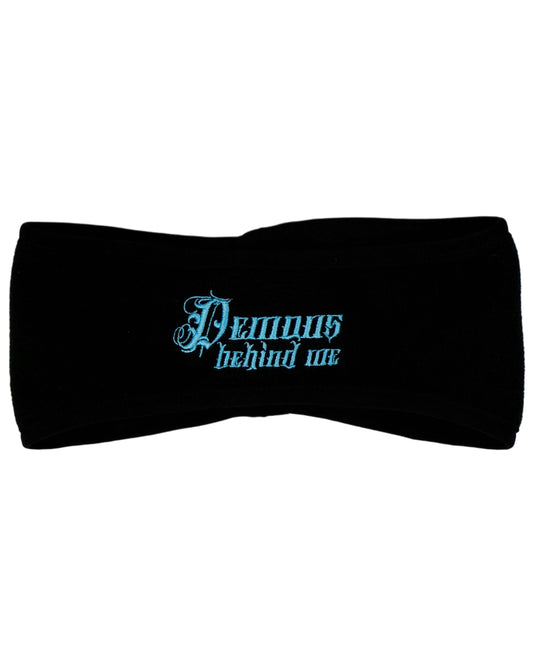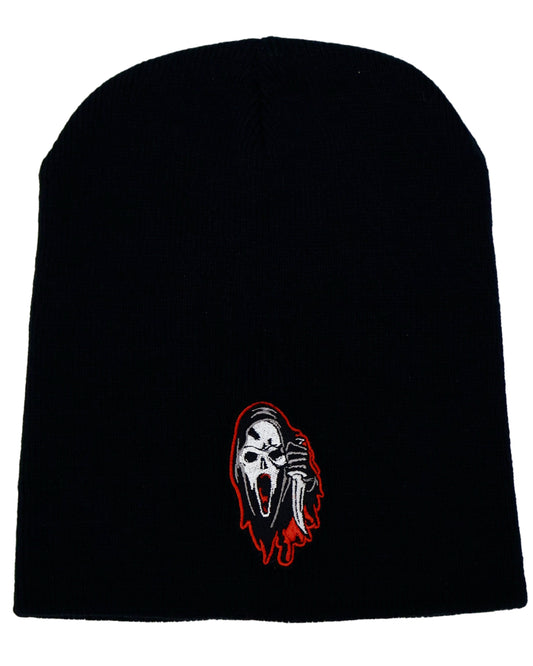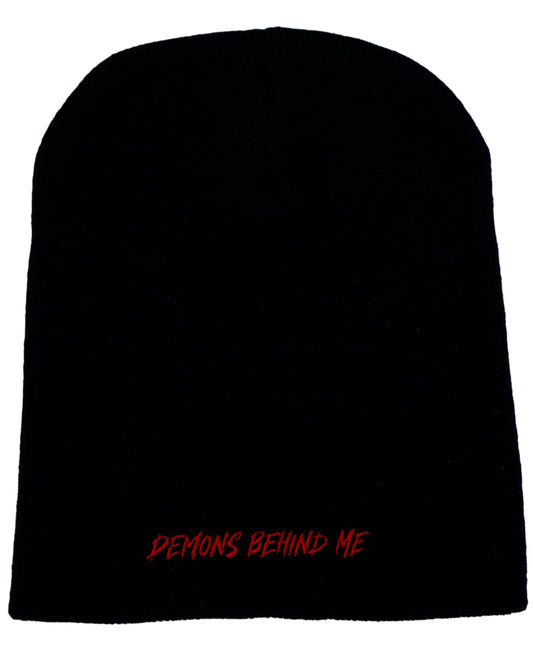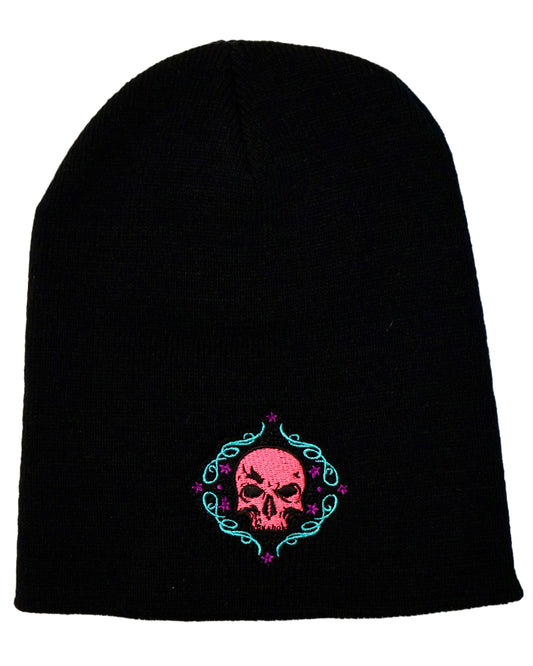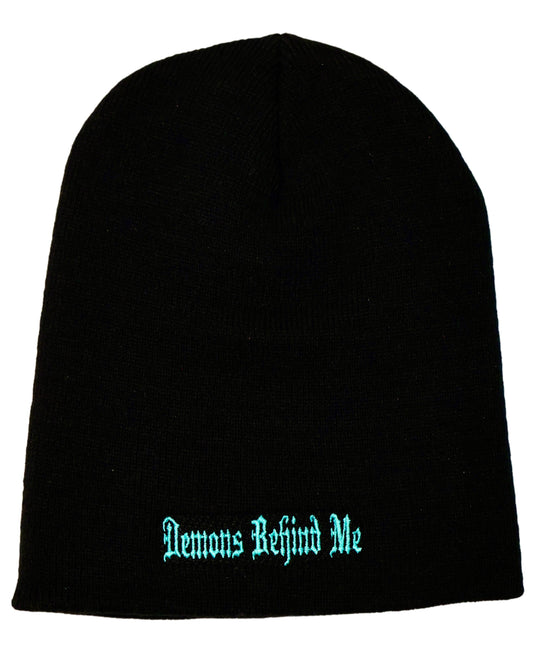The Rise of Empowerment Fashion: Trends and Influences

The rise of empowerment fashion blends trendsetting designs with messages of strength, equality, and self-expression.
Defining Empowerment Fashion
Fashion has always been more than fabric, thread, and embellishments — it’s a silent language that speaks volumes about our beliefs, our aspirations, and the identities we hold dear. In recent years, a transformative movement known as empowerment fashion has emerged, blending aesthetics with advocacy. Brands like Demons Behind Me have embraced this revolution, creating garments that act as messengers, carrying not only bold designs but also powerful statements of resilience, equality, and self-worth.
What is empowerment fashion and why is it trending?
Empowerment fashion is a form of clothing intentionally designed to inspire confidence, convey personal or societal values, and sometimes advocate for causes. Whether it’s a hoodie with a motivational quote, a bracelet engraved with an affirmation, or a sustainably sourced T-shirt with a bold political statement, empowerment fashion merges purpose with style. The trend has accelerated as social media, identity politics, and conscious consumerism converge — making clothing a vehicle for both personal and collective storytelling.
How clothing became a tool for confidence, activism, and self-expression
For centuries, attire has symbolized status, belonging, and rebellion. Today, people are increasingly aware of how their clothing influences perception — not just by others, but by themselves. Wearing an empowerment piece can be a conscious act of self-validation, a show of solidarity with a cause, or even a subtle protest against oppressive norms.
Overview of its growing cultural and fashion industry relevance
From street markets to luxury boutiques, empowerment fashion is reshaping retail strategies. Designers now weave social messaging into their collections, while consumers actively seek pieces that feel authentic to their identity. The fashion industry recognizes this as more than a seasonal fad — it’s a fundamental shift toward value-driven expression.
The Roots of Empowerment Fashion
Empowerment fashion’s current momentum is rooted in a long history of clothing as protest, identity, and cultural heritage.
-
Historical examples of fashion as a statement of identity
When women in the suffrage movement wore white in the early 1900s, they weren’t just dressing for aesthetics — they were signaling unity and purpose. Similarly, the Black Panther Party’s choice of leather jackets, berets, and all-black ensembles in the 1960s conveyed strength, discipline, and resistance.
-
Political and social movements that influenced clothing trends
The feminist movement brought slogan tees like “The Future is Female” into mainstream visibility, while LGBTQ+ pride marches turned the rainbow flag into a universally recognized emblem of acceptance and diversity. The anti-apartheid movement in South Africa saw the rise of T-shirts bearing political leaders’ images as a rallying cry for justice.
-
Transition from niche activism wear to mainstream fashion
What once belonged to protest lines has now entered shopping malls. High-end brands such as Dior embraced feminist slogans with “We Should All Be Feminists,” while sportswear giants like Nike champion social justice with campaigns featuring athletes like Colin Kaepernick. This crossover from activism to retail has solidified empowerment fashion as both culturally potent and commercially viable.
Current Empowerment Fashion Trends
Today’s empowerment fashion reflects a seamless blend of advocacy and aesthetics, appealing to diverse demographics.
-
Popular styles and slogans in motivational clothing
Minimalist designs with bold typography remain popular because they deliver direct, impactful messages. Slogans such as “Be Kind,” “Stronger Together,” and “Mind Over Matter” adorn T-shirts, hats, and jackets, appealing to those who want their outfit to speak as loudly as they do.
-
The rise of inspirational apparel and streetwear collaborations
Streetwear — historically rooted in subculture and rebellion — has become a natural platform for empowerment fashion. Brands collaborate with grassroots movements to release limited-edition pieces that raise funds for causes like mental health support, climate action, and gender equality.
-
Gender-neutral and inclusive fashion lines
Empowerment fashion challenges gender binaries by offering versatile silhouettes, inclusive sizing, and designs that embrace all identities. The message is clear: style belongs to everyone, and empowerment is for all.
-
Sustainable and ethical production as part of empowerment fashion
Conscious consumerism has pushed brands to ensure that their empowerment messages aren’t undermined by unethical practices. Organic fabrics, fair-wage production, and low-waste manufacturing are now integral to the empowerment aesthetic.
The Motivational Clothing Movement
The motivational clothing movement is a close cousin of empowerment fashion, focusing on apparel that inspires positive change from within.
-
Key brands leading the movement
Labels like Demons Behind Me speak directly to personal triumph over adversity, while Phenomenal Woman celebrates intersectional feminism. Other brands like Stay Woke Apparel merge activism with streetwear appeal, creating styles that resonate across generations.
-
Social media’s role in spreading empowerment apparel
Instagram, TikTok, and Pinterest act as catalysts for this movement. A single viral post featuring a motivational hoodie can spark global demand. Social platforms also enable storytelling, allowing brands to share the deeper meaning behind their designs.
-
Celebrity endorsements and influence
Celebrities have become powerful ambassadors for empowerment fashion. When Serena Williams wore a black catsuit at the French Open, it became a symbol of strength and defiance. When Harry Styles wears dresses and pearls, it challenges traditional gender norms while embracing freedom of expression.

Cultural and Societal Impact
Empowerment fashion doesn’t just influence wardrobes — it transforms cultural norms and encourages social progress.
-
How empowerment fashion shapes personal identity and self-esteem
Wearing apparel that aligns with personal values can be a confidence booster. For many, empowerment fashion serves as a daily affirmation, a reminder to embrace resilience, compassion, and authenticity.
-
Representation and inclusivity in modern style
Today’s brands are casting diverse models that reflect real-world demographics. This shift ensures that consumers see themselves represented, which can foster greater self-acceptance and societal inclusion.
-
The role of fashion in activism and advocacy campaigns
Fashion often serves as a unifying banner for movements. Matching T-shirts for protest marches, bracelets for charity causes, and even themed sneakers for awareness months help participants visually align with a cause.
Self-Expression Through Style
Fashion has always been a deeply personal medium, and empowerment fashion makes that self-expression even more intentional.
-
Fashion as a personal manifesto
Whether it’s a tote bag printed with a climate change slogan or a denim jacket covered in hand-sewn patches representing different causes, empowerment fashion gives people a platform to declare their beliefs without uttering a word.
-
How empowerment fashion helps individuals tell their story
A cancer survivor wearing a “Warrior” hoodie isn’t just making a fashion choice — they’re sharing a chapter of their life story. Empowerment fashion transforms personal narratives into public expressions of identity.
-
The psychology of wearing empowering apparel
Research in “enclothed cognition” suggests that what we wear can influence our psychological state. Wearing clothing that reflects personal empowerment can improve mood, enhance self-perception, and even affect performance in daily tasks.
The Influence of the Fashion Industry
The global fashion industry has played a significant role in amplifying empowerment messages.
-
How designers are incorporating empowerment themes
High-fashion designers like Prabal Gurung use the runway to debut socially charged collections, while fast-fashion labels adopt empowerment slogans to appeal to younger, socially conscious shoppers.
-
Runway trends and fashion week highlights
Events like Paris Fashion Week have showcased collections dedicated to themes like equality, mental health awareness, and cultural heritage preservation. These shows influence trends that trickle down to mainstream retail.
-
The commercial impact and consumer demand
Empowerment fashion sells — and sells well. Reports show that purpose-driven brands enjoy greater customer loyalty, with buyers willing to pay more for products that reflect their values.
Trend Analysis and Future Outlook
As the world becomes more interconnected and socially aware, empowerment fashion is poised for even greater growth.
| Trend | Description | Cultural Impact | Example |
|---|---|---|---|
| Slogan Apparel | T-shirts, hoodies, and caps with bold motivational or activist statements. | Raises awareness, sparks conversations. | “We Should All Be Feminists” T-shirt by Dior. |
| Gender-Neutral Fashion | Inclusive sizing and unisex designs for all identities. | Breaks gender barriers in style. | Collections by TomboyX and Wildfang. |
| Sustainable Empowerment Wear | Ethically sourced fabrics and eco-friendly production. | Promotes responsible consumerism. | Organic cotton activism tees. |
| Streetwear Collaborations | Partnerships between activist groups and streetwear labels. | Engages younger audiences with style-driven advocacy. | Mental health awareness hoodies by Supreme collabs. |
| Cultural Heritage Apparel | Clothing celebrating ethnic traditions and heritage. | Strengthens cultural pride and representation. | African-inspired prints by Stella Jean. |
Data on the growth of the empowerment fashion sector
Market research shows a steady rise in sales of empowerment-themed apparel, especially among Gen Z and Millennials who prioritize values over pure aesthetics.
Predicted styles and movements for the coming years
Customization will dominate, with consumers designing unique empowerment pieces online. Technology like AR try-ons and blockchain for supply chain transparency will further enhance this space.
The lasting legacy of empowerment fashion in culture
Empowerment fashion’s real legacy will be its ability to normalize self-expression tied to values — ensuring future generations view clothing as a tool for change, not just a trend.
Conclusion — Fashion as a Force for Change
Empowerment fashion is far more than a passing style trend — it’s a transformative blend of personal style, cultural influence, and meaningful social impact. It demonstrates that what we wear is not only an aesthetic choice but also a reflection of our beliefs, values, and aspirations. Each piece of clothing can carry a story, spark conversations, and inspire action.
Key Takeaways from the Rise of Empowerment Fashion
Empowerment fashion unites communities, amplifies voices, and drives change while remaining a vibrant form of creative self-expression. It bridges the gap between individuality and collective action, reminding us that style can be a powerful form of advocacy.
Why the Movement is Here to Stay
Grounded in authenticity and driven by a growing culture of social consciousness, empowerment fashion has secured its place in both high fashion and everyday wardrobes. As long as people seek authenticity in what they wear, this movement will continue to shape the future of style and identity.
Call to Embrace Self-Expression Through Empowering Style
Every outfit is an opportunity to make a statement. Whether through a subtle embroidered message or bold activist graphics, your clothing can serve as a reflection of who you are and the change you wish to see in the world. Wearing empowerment fashion is not just a personal choice — it’s a contribution to a broader movement.
Want to learn more or collaborate on empowering fashion? Contact us here to start the conversation.
Frequently Asked Questions
1. What is empowerment fashion and why is it trending?
Empowerment fashion refers to clothing designed to inspire confidence, promote social causes, and allow individuals to express their identity through style. It’s trending because consumers increasingly value authenticity, self-expression, and brands that align with their personal beliefs.
2. How do empowerment fashion trends influence society?
Empowerment fashion trends can shape cultural conversations, break stereotypes, and amplify underrepresented voices. They promote inclusivity, encourage activism, and give people a visual way to show solidarity with important causes.
3. What are some examples of the motivational clothing movement?
Examples include T-shirts with bold slogans like “Stronger Together,” streetwear collaborations supporting mental health awareness, and gender-neutral clothing lines that promote equality. Brands like Demons Behind Me create apparel that tells stories of resilience and personal triumph.
4. How does self-expression through style impact identity?
Self-expression through fashion helps individuals feel more authentic and confident. Wearing empowerment clothing can reinforce personal values, act as a form of nonverbal communication, and influence how others perceive you.
5. What is the future of empowerment fashion in the fashion industry?
The future of empowerment fashion lies in sustainable production, customization, and inclusivity. As social awareness grows, more brands will integrate meaningful messaging into their designs, making empowerment fashion a lasting part of global style culture.
